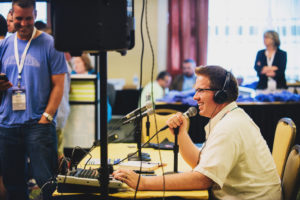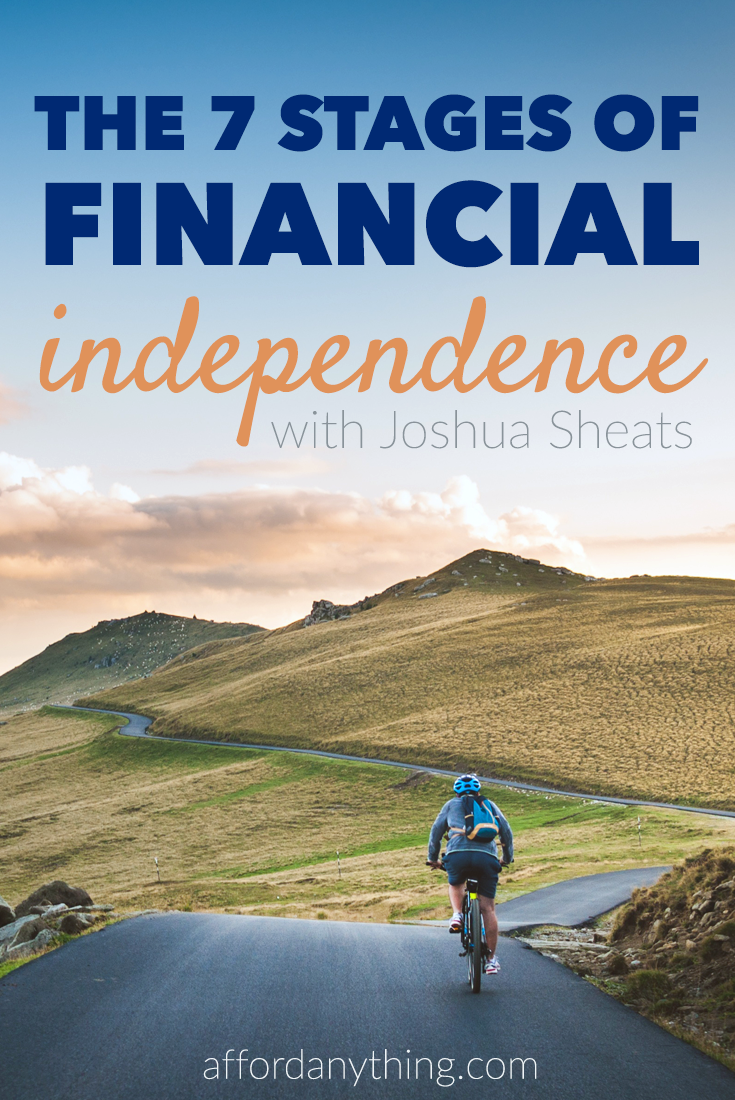
It’s tempting to think of “financial independence” as a finish line. You’ve either crossed the finish line, or you’re still running the race.
But financial independence is more nuanced, says today’s guest, Joshua Sheats.
We experience seven stages of financial independence, Joshua says, and we should break down our Major Goal — financial independence — into a series of smaller steps.
Joshua, a financial planner and host of the hit podcast Radical Personal Finance, describes these seven stages in today’s show, offering tips about how to reach each one.
Here’s a sneak peek:
Stage 0 – Total Financial Dependence. Everyone starts here. When you’re a child, for example, you’re dependent on grown-ups.
Stage 1 – Financial Solvency. You can support yourself, without help or handouts from others, and you’re current on your bills.
(Many people think that financial management stops at Stage 1. Our guest Evelyn Connors describes the mindset behind this misconception in Episode 28.)
Stage 2 – Financial Stability. You can support yourself, your bills are current, and you hold some savings.
Stage 3 – Debt Freedom. You’re debt-free, in addition to the points above. It’s your choice whether or not you want to include your mortgage within this definition. (Joshua elaborates on debt paydown during Episode 32 of his show.)
Stage 4 – Financial Security. You have enough investment income to cover basic, bare-bones living costs.
Stage 5 – Financial Independence. You have enough investment income to cover your current lifestyle.
Stage 6 – Financial Freedom. – You have enough investment income to cover BIG dreams and upgrade your lifestyle.
Stage 7 – Financial Abundance. – You have enough investment income that you cannot possibly spend this money. Vast amounts of your money will outlive you, and your focus is wise stewardship of this wealth so that you can leave a beautiful legacy.
(We touched on these seven stages briefly in our interview with J.D. Roth during Episode 20, but we dive deeper into these stages on today’s show.)
How do you traverse these seven stages? And how can you enjoy life while you’re along the journey?
Find out in this thoughtful interview with Joshua Sheats.
— Paula
P.S. About 2/3rds through the episode, listen for Joshua’s startling, counterintuitive advice about contributing to your 401k! Joshua elaborates more on this during Episode 314 of his show.
________
Joshua mentions that one of the best investments you can make is developing your ability to earn more.
If you’re an entrepreneur or a side hustler, you’re developing your earn-more-muscles. But you’re also tasked with invoicing and bookkeeping, two tasks that are necessary but doesn’t fuel future growth.
Freshbooks is a online platform featuring an easy, intuitive invoicing system designed for solopreneurs, freelancers and self-employed hustlers. They’re also an enthusiastic supporter of this podcast.
Try them for FREE — no credit card required! — by visiting Freshbooks.com/paula. When they ask how you learned about them, please mention the Afford Anything podcast. Thank you for your support!
